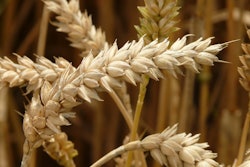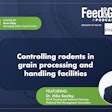
Have you ever thought much about habits? Have you ever tried to break a bad habit — or start a new good habit (like regularly flossing your teeth after repeated reminders from your dentist that this is a good practice)? Basically, we are talking about changing behavior — something that is easy to talk/think about, but much harder to do. Psychologists who study this area have outlined ways we can break bad habits and steps for starting good habits — more on this below. Our focus in this column will be to discuss habits that have been documented to be useful for managers and employees to be effective at their jobs — and how to make these habits part of your management approach and your workplace.
Habits, good and bad
We would like to focus our discussion initially on habits — what they are and how we might rid ourselves of bad ones. We’ll also look at how we can make positive habits part of our lives and our workplace. Then, we will look at the positive habits successful and effective people have and how might they be beneficial to you as the leader of a grain and feed business.
Psychologists who study human behavior have outlined the stages necessary to change behavior, and what is needed for something to become a habit. Habits are ingrained actions or behaviors that people perform on a regular basis, or as a response to some stimuli. Figure 1 above illustrates the steps needed to change a behavior, based on the work of Grimley, Prochaska, Velicer, Blair and DiClemente in their book The Transtheoretical Model of Change. There is logic in their approach, and we like how they have outlined some simple steps to making a behavior change — the challenge is that implementing the steps is not so simple!
In the “Precomtemplation” phase, they argue that a person is not even aware of a problem or issue. Thus, they need to be made aware through self-discovery or communication with a family member, friend or in the case of your feed and grain business — you as their supervisor. The point is that change is impossible if the person does not know they have a bad habit or are not aware that a good habit might help them. Upon being made aware, the person enters the “contemplation” stage where they are now aware of the issue and of the possible change in behavior desired. At this point, change is at least possible as the person weighs the pros and cons of making a change.
Now the fun begins! With awareness and desire comes the “preparation” stage where you as an individual or your employee intends to take action to change the behavior or habit. The individual now has decided that a change would be for the better. However, intentions are not sufficient to make the change; they must be followed up with the final two stages: “Action,” where you or your employee practice the desired change — and finally “Maintenance” where the individual continues to work hard to sustain the desired habit or behavior. Both of these steps are a must for any change to ultimately become habit — how many folks annually decide on New Year’s Day to put the treadmill to work and get more exercise — and do so religiously for about a month! If habits are not maintained, the individual then drops into “relapse” mode and the change in behavior does not occur. It is important to note that the approach outlined above can be utilized to drop a bad behavior or to institute a good behavior.
Habits of successful and effective people
Perhaps you have heard of or even have read the best-selling book by the late author Dr. Stephen R. Covey, titled The 7 Habits of Highly Effective People, published in 1989. It certainly falls into the “oldie, but goodie” category as a leadership/management book. We will discuss some of the key points Covey makes in that tome. Then, we will add some of our own habits/characteristics to Covey’s list of seven.
Covey’s seven habits
Author Covey asserts that our “character is a collection of habits,” and that these habits have a powerful role on our lives. He outlines that his seven habits move us through the following stages:
Dependence: the paradigm under which we are born, relying upon others to take care of us.
Independence: the paradigm under which we make our own decisions and take care
of ourselves.
Interdependence: the paradigm under which we cooperate to achieve something that cannot be achieved independently.
Much of what we hear today and which is often espoused by some success “experts” is the value of independence. The reality is that we are interdependent, and the independent model is not particularly optimal in an interdependent environment that requires leaders and team players — such as a feed and grain organization.
Let’s take a quick look at Dr. Covey’s list of seven habits:
- Habit 1: Be Proactive — This habit posits that change starts from within. Highly effective people make the decision to improve their lives through the things they can control rather than by reacting to external forces.
- Habit 2: Begin with the End in Mind — Covey suggests that highly effective people develop a principle-centered “personal mission” statement. Then, they extend this mission statement into long-term goals based on these personal principles.
- Habit 3: Put First Things First — This habit occurs when a person spends time doing what fits into their personal mission and by keeping the proper balance between production (doing things) and building production capacity (learning for yourself, teaching others). Covey suggests that effective people identify the key roles they take on in life and then make time for those roles.
- Habit 4: Think Win/Win — We hear a lot about this as a positive strategy for managers, and “Win/Win” solutions may take creativity and serious thought, but are far more likely to be successful longer term than the alternative. Effective managers seek agreements and relationships that are mutually beneficial. Covey even states that in cases where a “win/win” situation cannot be achieved, agreeing to make “no deal” may be the best alternative.
- Habit 5: Seek First to Understand, Then to Be Understood — Stephen Covey presents this habit as the most important principle of interpersonal relations — and it relates to our comments on communication at the end of this column. Covey states that effective listening is not just echoing what the other person has said through the lens of your experience. Rather, it is putting yourself in the other person’s situation, looking at things from their point of view — listening emphatically for both feeling and meaning.
- Habit 6: Synergize — Effective people have a way of developing trustful communication, and as a result find methods to leverage individual differences to create a whole that is greater than the sum of the parts. Essentially this becomes the habit of finding a better solution than would have been obtained through any of the participants (your employees) own solutions.
- Habit 7: Sharpen the Saw — This habit is important for effective leaders. Covey is emphatic that you should take time out from “production” to build “production capacity” through personal renewal of your physical, mental, social/emotional and spiritual dimensions. Readings, vacations, retreats, personal time are all methods of “sharpening your saw.”
Additional habits to consider
We like Covey’s list of seven habits, but would add a couple of additional ones for your consideration:
- Effective people communicate effectively: First listen, and listen well. Resist the temptation to talk too much. Then, run your communications by several people before you send them out. Editing and comments from others will ensure that you send the message you want to, as they will flag things that are not clear or which they do not understand. Practice the habit of effective communication.
- Effective people practice timely decisionmaking. Think analytically and critically, but don’t get bogged down in waiting too long to act. Understand that almost every issue has two sides and pros and cons to it, but make a decision and act on it. Do not suffer from “paralysis by analysis.” Practice the habit of timely decisionmaking.
- Effective people delegate: The most effective people we know hire good people and then are willing to trust them, delegate things to them and give them significant responsibility to get the job done without needing to be micromanaged. One of the best definitions of management we have heard of is that it is “the process of getting things done with and through other people.” In your role as manager/leader, perhaps nothing is more important than growing people — and that happens in part through giving them increasing levels of responsibility. Practice the habit of delegation.
Build a list of effective behaviors and make them habits
As indicated above, behavior can be changed. To become a more effective manager, we would encourage you to take stock of one or two key behaviors you would like to begin or change. Then, prepare yourself and take action to implement them. Write them down, and then work on them (every day) to implement them. And another idea that may help you ensure success — have one or two of your key, trusted people assist you in changing your behavior or launching a new good habit. Explain to them what you are doing and why, and ask for assistance in making these desirable traits part of the way you lead and manage.
Then, take the same approach with one or two key employees — coach them on a behavior you would like to see them change. Or conversely, ask them to do a self-critique and come up with one or two habits they would like to institute in their own work and help them implement these good traits. Follow the five steps laid out above to break a bad habit, or to begin a new, good one.
Work hard to change
The reality is that all of us can improve the habits that we have, and that these improvements can be good for your feed and grain business. Change does not come easily, but once a good behavior/best practice becomes a habit, it is part of your management routine and will make you (and/or your people) a more effective leader.
Subscribe to Magazine


















